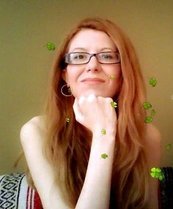|
By Lidiya Angelova
The discovery of CRISPR-Cas9 genome editing has changed the world forever, but what was behind that and how did it inspire one young mind to pursue a career in science?
CRISPR is an array made up of a series of direct repeats alternating with short intervening regions ("spacers") or Clustered Regularly InterSpersed Palindromic Repeats (1,2). It’s bacteria’s way to defend and gain resistance against phages (the viruses which infect bacteria). CRISPRs form a complex with a nuclease called Cas9 and is targeted by a short guide RNA that recognizes the target DNA via Watson-Crick base pairing. The guide sequence within these CRISPR RNAs typically corresponds to phage sequences, constituting the natural mechanism for CRISPR antiviral defence, but can be easily replaced by a sequence of interest to retarget the Cas9 nuclease (3). CRISPR RNA-guided systems are extremely versatile and can be easily programmed to target virtually any RNA or DNA substrate. These new RNA-guided nucleases are now being exploited by genome engineers for programmed manipulation of nucleic acids in diverse model systems (4).
CRISPR-Cas9 is a technology indicative of the future and inspired one young mind to read more about it and be a scientist one day. This is the 17-year-old Nguyễn Thụy Miên (Josephine) from The Anglophone British Curriculum International School in Ho Chi Minh City, Vietnam. She spent two years of reading and collecting information about the topic. You can read her review after the short interview below: When and how did you become interested in research?
Do you plan to pursue future education in the sciences? Yes, I will pursue future education in science. One of my biggest life goals is to improve and save people's lives. Thus, I am currently deciding between studying & pursuing a career in either genetics or medicine, as both these fields allow me to achieve my goal while studying what I love the most. Do you have any other advice or recommend any tools for young scientists like yourself? For example, how were you able to access journals? My top recommendation for an online website that contains many academic papers and journals is PubMed.gov. Another useful tool is textbooks; there are textbooks available for sale online for just about every field in science and they often cover their respective subjects in detail. Obviously, some of them are expensive but they are also extremely helpful. An important advice I would give for other young scientists is to gather information from multiple sources. This will help them understand concepts fully, ensure that the information they have is correct, and they might even find other interesting things which they may wish to look further into! 
About the Author Lidiya’s curiosity about “how the life works” led her to complete a Master’s degree in Biology and a PhD in Microbiology. Science gave her more questions than answers and after a few years as a postdoc at the National Institute of Health in Rockville, MD, USA, she decided to pursue her “first” love in writing. Not long after that, she became a mom of a wonderful girl, who is a very energetic toddler now. She loves to travel and has lived in many countries; she is still looking for a place to settle down. Lidiya is thrilled to be a part of the Scientista bloggers team, and loves being able to connect with lots of wonderful young, and already established female scientists, while writing about science, life and everything else. Comments? Leave them below!
0 Comments
Leave a Reply. |
SPOTLIGHTSMeet our Scientista Spotlights -- current-day women in STEM and women from science history -- and find your role model! Read opinion editorials and history pieces to get additional inspiration.
WHAT'S NEWYOU MIGHT ALSO LIKE
WHAT'S HOTCONNECT WITH USARCHIVES
June 2018
|
The Scientista Foundation, Inc. All Rights Reserved © 2011-2021 | Based in NY | [email protected]
The Network for Pre-Professional Women in Science and Engineering
The Scientista Foundation is a registered 501(c)(3) -- Donate!
The Network for Pre-Professional Women in Science and Engineering
The Scientista Foundation is a registered 501(c)(3) -- Donate!










 RSS Feed
RSS Feed